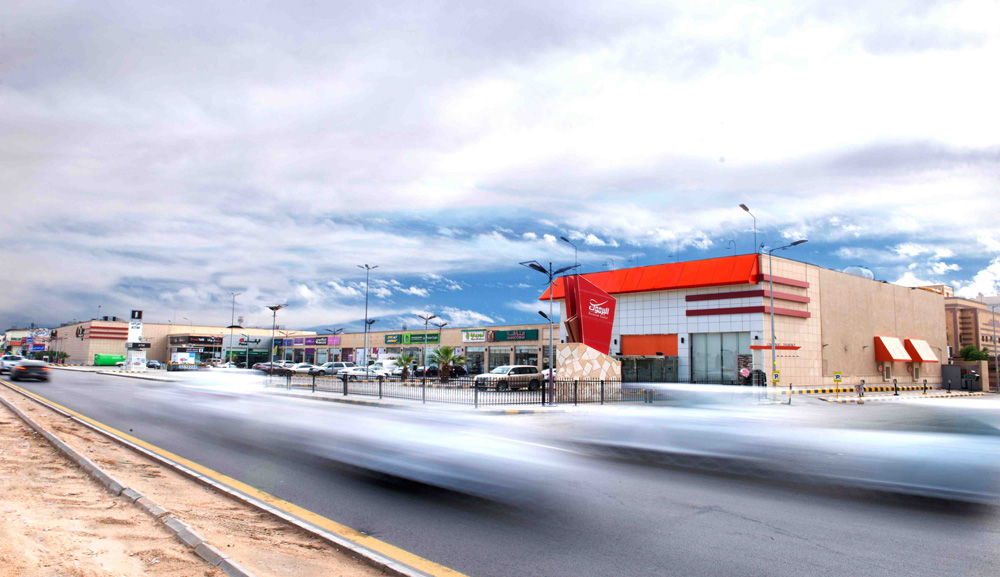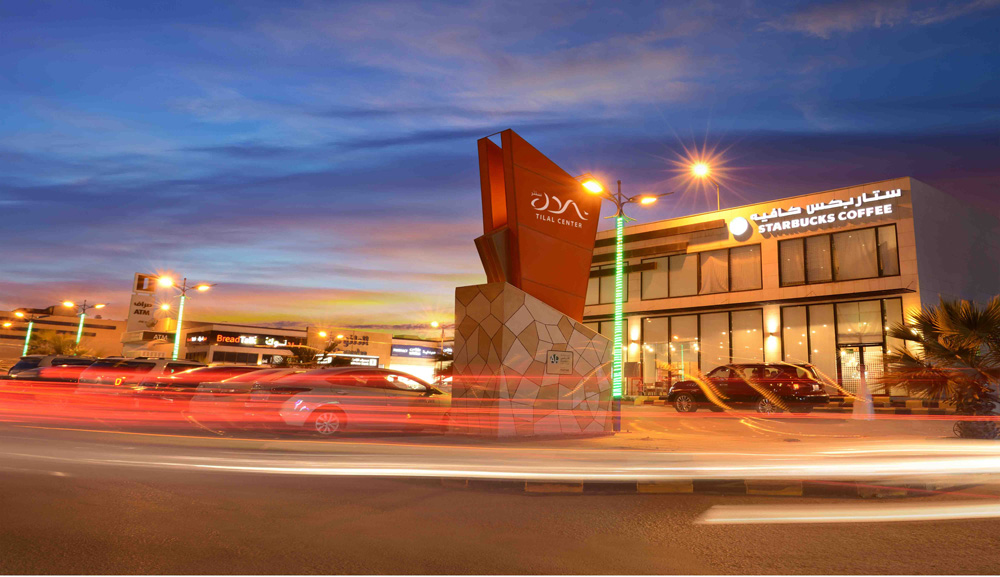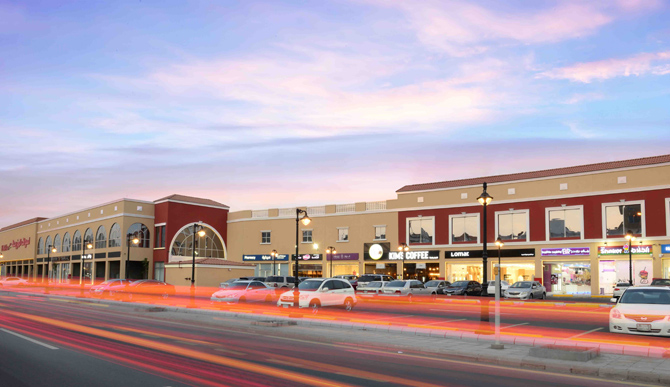DUBAI: Top of the agenda at a recent gathering of the Retail Leaders Circle, in Riyadh, was one issue: How to take advantage of the booming prospects offered by e-commerce in Saudi Arabia’s consumer industries.
According to one industry estimate, non-store retailing — goods and services bought by shoppers online — will grow by 93 percent in the five years to 2023. That could be presented as a huge opportunity for retailers to expand sales in a new market of consumers that rarely sets foot inside a mall.
Hathal Al-Utaibi sees it differently. As chief executive of the Alandalus chain of malls, he is a committed advocate of the view that physical shopping centers can be the dynamo of growth in the sector — as long as the operators take advantage of the huge transformation under way in the Kingdom’s leisure, entertainment and cultural sectors.
“Now is the right time to differentiate yourself. It is not about the quantity you are offering any more, but the quality. We are shifting our malls away from being a platform for retailing brands and becoming instead a destination with a high level of engagement with the public. It is not just about retailers, it is about engagement,” he told Arab News.
Engagement will take a number of forms: Designing space for maximum appeal, co-ordinating mall openings and operating hours, orchestrating the tenant mix inside the properties with the catchment areas in which they operate, and matching the product offering to the spending power and taste of the local community, for example.

Yarmouk Center, developed by Alandalus Property on rented land on Dammam road, Riyadh city, has a high occupancy rate reaching as high as 91 percent in 2018. (Courtesy Alandalus.com)
“If you do these calculations right, you will mitigate the risk that you face as a destination creator from the emerging e-commerce and other challenges. The idea is shifting from being a platform for retailers to being a creator of multiple ‘third places’,” he said.
The concept of the “third place” is gaining ground in the Saudi retail scene. The idea is to create an attractive proposition outside the first two places — home and work — that consumers experience in their daily lives.
Al-Utaibi sees the malls as a place for shopping, of course, but also as centers for day care, fitness and yoga studios, food and beverage and cinema, and even government services outlets.
He is not just acting on a hunch, even though his intuitions about the retail industry reflect many years of experience at Alandalus and before that at the food group Almarai. The company commissioned a study of the Saudi Arabian retail and malls sector by international consulting firm AT Kearney to develop a corporate strategy, which Al-Utaibi is now in the process of implementing.
Traditionally mall operators believed that if you got the right mix of tenant retailers, the customers would naturally follow. In the new dynamic of the retail business, with more sophisticated shoppers who have a greater degree of choice than ever before, that is simply not enough.
“Now it is about multiple benefits and offerings for the shoppers. For example, if you have a Mothercare store, you do not have to put another children’s store next to it. You can put a well-designed and modern day-care center there,” said Al-Utaibi.
As a mall owner and operator, Alandalus has a different set of priorities to the big retail brands. “I’m not a retailer. I’m a landlord. E-commerce is competing with me to offer retailers solutions, to open an e-commerce arm rather than open a store in my malls. That is the risk for me — it will replace me as a distribution channel. To mitigate that risk, I need to differentiate myself.
“E-commerce is building their business model on efficiency and price sensitivity. I am building my model on experience and having a good time and engagement. For me it is not about e-commerce versus bricks and mortar. It is about how to engage online and on social media with experiences,” Al-Utaibi said.
“Our shoppers will not come just to buy stuff. They will come to have a good time,” he added.
BIO
BORN: Al-Dawadmi, Riyadh Province, 1977
EDUCATION
- BSc in marketing, King Fahd University of Petroleum and Minerals, Dhahran
- Postgraduate Diploma in Marketing, University of Leicester, UK
- MBA King Saud University, Riyadh
CAREER
- Marketing executive, Alwatania, KSA
- Personal banking officer, Bank AlJazira, KSA
- Brand manager Almarai, KSA and Gulf
- Chief executive officer, Alandalus
Alandalus operates seven malls in the Kingdom, ranging from what it calls “super regional” malls in Jeddah and Riyadh — more than 80,000 square meters in size — to a smaller “regional” mall in Dammam and four “community” malls in those cities. It also has business in hospitality and healthcare attached to the original Alandalus mall in Jeddah and interests in real estate investment trusts (Reits), as well as commercial property interests. In 2015, it became the first mall operator to list on Riyadh’s Tadawul exchange.

Telal Center, developed by Alandalus Property on a leasehold land in Almalqa district in Riyadh, is located on Anas bin Malek Road, in the northern part of Riyadh City. (Courtesy Alandalus.com)
The listing was well timed to catch the wave of transformation of the Kingdom’s economic, social and cultural life under the Vision 2030 strategy to diversify the economy away from oil dependency. Many of the measures introduced — such as allowing women to drive and loosening restrictions on public entertainment — talk directly to the “engagement” strategy of Alandalus.
“Globally e-commerce does not represent a big portion of the entire retail business at the moment. The issue for retailers is that they are not evolving and updating their offer to match the lifestyle of current shoppers and the millennial generation. These people have higher standards. They do not want to go and shop in a department store. They want to shop in a unique store that will differentiate them from others.
“The current problem for retailers is not just e-commerce, it is that they have become disconnected from what the current generation of shoppers wants and needs. As a landlord, I’m trying to attract retailers who understand you have to have an offer that will appeal to the current generation,” he said.
One of the things this generation wants is the cinema experience. “Cinema is one of the high engagement aspects, and that’s why we want it in our properties,” he said.
There will be an Empire cinema in Alandalus mall in Jeddah from the second quarter this year, as well as a planned AMC film venue in the Dareen Mall in Dammam later on.
Al-Utaibi is also in negotiations with several operators, including the Vox Cinema chain, to open in the Hayat Mall in Riyadh.
“We have received a number of offers and are currently running our competitive analysis,” he said.

Al-Marwah Center, located on Prince Majed Road in Marwah District, Jeddah, occupies an area of 17,030 square meters. (Courtesy Alandalus.com)
The Kingdom’s retail sector suffered for a number of years after the oil price began to fall in 2014, which affected government spending and salary levels in the public sector. At the same time, the withdrawal and reduction of certain government subsidies affected consumers’ spending capacity. Al-Utaibi believes the climate has improved recently.
“Customers and shoppers are willing to spend. However, they demand the right quality and services. They are being more selective and insisting on quality. We did not notice any significant drop in footfall, and we have detected an upturn in recent quarters,” he said.
Alandalus has just published financial results for the 2019 financial year, showing a 7 percent rise in revenues to SR176 million ($47 million) and a 12.6 percent jump in operating profit to SR104 million, boosted by revenue from the Al-Salama officer tower in Jeddah as well as the West Jeddah hospital, a joint venture with the Dr Sulaiman Al-Habib Medical Group, which just pulled off a multi-billion riyal listing on the Tadawul.
Al-Utaibi said that the experience of Alandalus on the Saudi stock market had been a good one, leading to an improvement in governance and financial efficiency. A possible further capital-raising exercise was an option that was under consideration by the board. “All options are there,” Al-Utaibi said.
He admitted to one frustration in his daily work as CEO: The amount of time he spends dealing with the planning applications, utilities provision, licensing and other forms of bureaucracy inherent in property development and retail growth.
He expressed his hope that the recent cabinet changes in some business and investment positions would lead to an improvement in the bureaucratic process within the Kingdom.
“Time matters in the retail industry, and we have to deal with a lot of ministries at the moment,” he added.
















